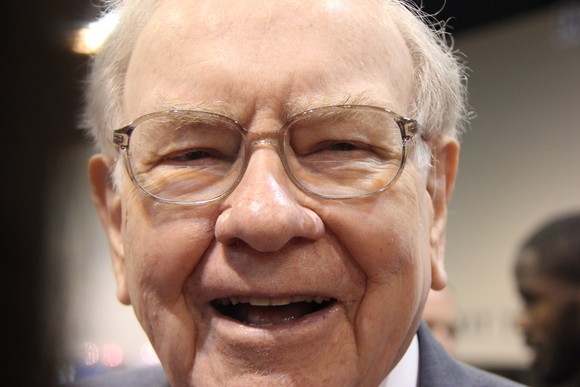Warren Buffett is the longtime CEO of Berkshire Hathaway (BRK.A +1.16%)(BRK.B +1.20%). He is also a Wall Street legend, given how well the company he has run for decades has performed relative to the S&P 500 (^GSPC +0.13%).
But no matter how good his track record has been, investors knew it was just a matter of time before he would retire and, at the same time, the story behind Berkshire Hathaway would change. That time is fast approaching.
What is Warren Buffett doing?
At Berkshire Hathaway's annual meeting, Warren Buffett announced that he would be stepping down as CEO of the company at the end of 2025. Longtime employee Greg Abel will replace him. There are a lot of important nuances here, but whenever a new leader takes over, things change. Buffett is Buffett; Abel is Abel. They are different people with different personalities and styles.

Image source: The Motley Fool.
Given the huge success that Warren Buffett has had running Berkshire Hathaway, it is completely reasonable if investors are worried. Too much change, and this once strongly performing business could start to flounder. It wouldn't be the first time that a strong leader has left a company and the new leader simply didn't have the same mojo.
Walt Disney is an example of what can happen in such a situation. When Bob Iger retired a few years ago, his replacement was quickly embroiled in difficulties. Eventually, the board of directors convinced Iger to return and replace his replacement. It was all very dramatic. Don't expect the same thing to happen at Berkshire Hathaway.

NYSE: BRK.B
Key Data Points
Buffett isn't going that far
For starters, Greg Abel has been working at Berkshire Hathaway since 1999. He has, thus, been training at the side of the so-called Oracle of Omaha for decades. Over the last few years, he has probably been intimately involved in all the company's investment decisions.
It is 100% certain that Abel has his own approach, but it is no doubt heavily influenced by Warren Buffet's investment style. And given the success of Buffett's investment approach, it seems likely that Abel isn't going to come in and try to drastically change anything.
A key part of this, however, is the "hands off" nature of Buffett's approach. He tends to buy good companies when they are attractively priced, if not cheap. But then he lets management do their jobs, so that Berkshire Hathaway can benefit from the long-term growth of the business.
So, in some ways, Buffett is more like a mutual fund manager than a CEO. He's there for consultation, and will step in when needed, but otherwise he's not actually running the companies Berkshire owns and invests in. Unless Abel takes a more "hands on" approach, there's no reason to think the underlying businesses within Berkshire Hathaway will be operated any differently in 2026 than they are being operated in 2025.
The last big reason to expect things to basically stay the same is because Buffett isn't actually walking away and washing his hands of the company he once operated as CEO. He's sticking around as the president of the board of directors. This is notable because Buffett is Abel's boss today. And he will still be Abel's boss after the CEO switch takes place, because the board hires the CEO. (Shareholders hire the board to oversee the company for them.)
I wouldn't expect Buffett, given how he runs Berkshire, to rule over Abel with an iron fist. However, I also wouldn't expect him to let Abel make massive changes or obvious mistakes, either.
Berkshire is entering a new chapter
Still, investors need to recognize that Berkshire Hathaway is entering a new phase of existence. And, at some point, Buffett won't be in the picture at all. But for now, he will still be there in both spirit and, fairly regularly, in person. And that should keep the changes that new CEO Greg Abel makes minimal. Given the company's history, that's probably a good thing.
